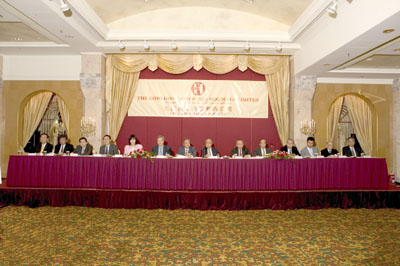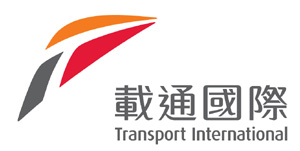|
The
Kowloon Motor Bus Holdings Limited 2004 Annual General
Meeting
At KMB Group's Annual General
Meeting today (Thursday, 20 May 2004), the Group's Chairman, Sir Sze-yuen
Chung, reported the financial results for 2003. Profit attributable
to shareholders for 2003 was HK$597.0 million and earnings per share
for 2003 were HK$1.48, both representing a decrease of 36.5% compared
with 2002.
Despite the profit decline,
the Board has recommended a final dividend of HK$1.58 per share for
2003, the same level as 2002. Together with the interim dividend of
HK$0.45 per share already paid in last October, the total dividend for
2003 will amount to HK$2.03 per share, same as the amount for 2002.
"2003 was a challenging
year for the Group. During the first half of the year, the SARS outbreak
had a serious impact on our business. However, during the second half
of the year, the local economy began to recover and the Group's performance
steadily improved," said the Group's Chairman, Sir Sze-yuen Chung.
"The Kowloon Motor Bus
Company (1933) Limited ("KMB") recorded a decline in patronage
in 2003. The decline was attributable to the impact of SARS and the
loss of passengers to the expanded railways. Long Win Bus Company Limited
("LWB") also saw a significant decrease in ridership due to
the substantial drop in the number of tourists during the SARS outbreak.
Despite the impact of SARS and the increase in operating costs as a
result of the escalated oil prices, insurance premiums and toll charges,
etc., KMB and LWB continued to support the community during times of
economic difficulty. We expanded the coverage of our Bus-bus Interchange
("BBI") schemes and offered fare concessions for passengers
travelling on relatively long distance routes. These concessions were
made possible by productivity enhancement and stringent cost control
measures."
The Kowloon-Canton Railway
West Rail commissioned in December 2003 and the Ma On Shan Extension
to be commissioned in the fourth quarter of this year are bound to have
an adverse impact on KMB's patronage. However, the improved economy
and the surge of Mainland tourists should generate some passenger growth
to partially offset the loss of patronage to those new railways. The
Group will need to rationalise its bus network and re-deploy resources
from those affected areas to locations in need of bus services. Excess
resources will be disposed of through natural attrition. Over the longer
term, the Group anticipates steady growth in patronage when more new
towns are developed to accommodate the expected population growth.
The Group's strategy is to diversify its business by continuing to explore
new growth opportunities that can be leveraged on its core competencies.
During 2003, the Group concluded
three large-scale joint venture projects in Beijing, Shenzhen and Wuxi.
Whilst the Shenzhen project awaits final approval by the relevant government
authorities on the Mainland, the Beijing and Wuxi projects commenced
operations in March 2003 and February 2004, respectively. The Group
anticipates that these operations will make an increasing contribution
to its earnings in the years ahead.
The Group will also continue
to develop its non-franchised transport business in Hong Kong by meeting
its customers' specific needs, whether for prestige premium services
or value-for-money services. The Group anticipates that its media sales
business will strengthen in 2004 in line with the economic recovery.
The redevelopment of the former Lai Chi Kok Depot site into a residential
and commercial complex is scheduled for completion by mid 2006 and this
project will generate new income and be a potential source of new customers
for KMB.
Sir Sze-yuen Chung said,
"We recognise the importance of good corporate governance and transparency
and will continue to improve our internal controls and corporate governance
practices and channels of communication."

At
KMB Group’s Annual General Meeting, the Group’s Chairman, Sir Sze-yuen
Chung (eight from the left), reported the financial results for 2003.�
|

